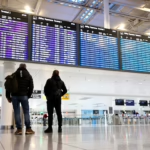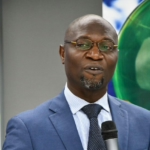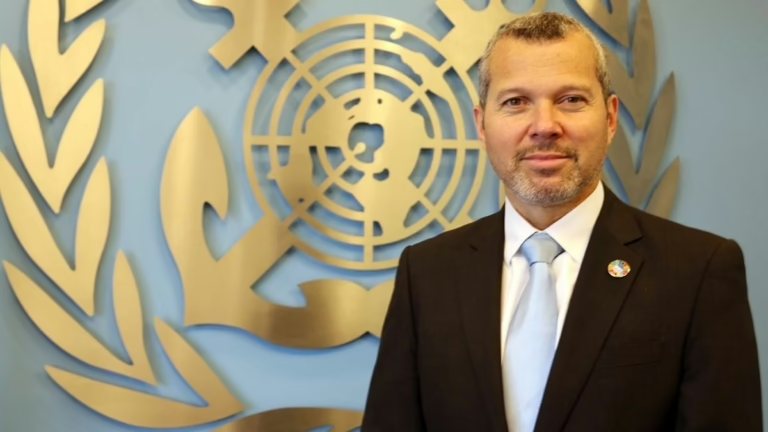Arsenio Domínguez, Secretary-General of the International Maritime Organisation (IMO), has praised Nigeria for its remarkable progress in maritime security, highlighting that the country has maintained a piracy-free record along its coastline for over three years.
During his visit to Nigeria on Thursday, Domínguez met with Adegboyega Oyetola, the Minister of Marine and Blue Economy, to discuss the nation’s advancements in maritime safety.
The IMO leader lauded Nigeria’s innovative Deep Blue Project, describing it as an exemplary framework for fostering regional collaboration across the Gulf of Guinea.
Minister Oyetola emphasized that Nigeria’s strategic investments in maritime security infrastructure, coupled with the coordinated efforts of its security agencies-particularly the Nigerian Navy-have been instrumental in curbing piracy and other maritime offenses.
He further asserted that these initiatives underscore Nigeria’s role as a regional leader committed to securing not only its own waters but also those of West and Central Africa.
Domínguez acknowledged Nigeria’s recent comprehensive report submitted to the IMO, detailing national and regional security strategies. While commending the strides made, he highlighted the ongoing necessity for enhanced infrastructure and the procurement of advanced maritime technology.
He assured that the IMO remains dedicated to supporting Nigeria through technical assistance, including awareness campaigns, specialized training, and capacity-building programs.
In outlining the organisation’s current endeavors, Domínguez mentioned an upcoming regional conference on the Safe Seas Project, slated for January in Ghana, aimed at consolidating efforts from Nigeria and its partner nations.
He also revealed active negotiations with the European Union to initiate a maritime governance project focused on port security, alongside two additional regional initiatives in Southern and Western Africa, with progress monitored via specific performance indicators.
Beyond security concerns, Domínguez stressed the importance of preparing for broader global maritime challenges such as the energy transition, adoption of sustainable biofuels, and establishing financial frameworks to support seafarer training, infrastructure enhancement, and future fuel integration. He commended Nigeria’s Blue Economy Policy as a visionary approach to sustainable marine resource management and expressed admiration for the Maritime Academy of Nigeria in Oron, particularly its state-of-the-art training facilities.
He encouraged stronger partnerships between the academy, the Ministry of Education, and industry players to inspire and guide Nigerian youth toward careers in the maritime sector.
Minister Oyetola, responding to the visit, highlighted the robust relationship between Nigeria and the IMO. He credited the collaboration with the Nigerian Navy and other stakeholders for the significant reduction in piracy within the Gulf of Guinea and reaffirmed Nigeria’s commitment to building on these successes while expanding opportunities within the marine and blue economy sectors. He expressed gratitude to Domínguez for selecting Nigeria for this important engagement and expressed confidence that the dialogue would deepen bilateral cooperation.
The visit featured presentations from senior government officials and key maritime stakeholders. Dr. Dayo Mobereola, Director-General of the Nigerian Maritime Administration and Safety Agency (NIMASA), outlined ongoing reforms targeting security enhancement, seafarer welfare, and regulatory improvements designed to elevate Nigeria’s maritime stature. Dr. Kevin Okonna, Acting Rector of the Maritime Academy of Nigeria, Oron, highlighted the academy’s cutting-edge training infrastructure and stressed the value of international collaborations in cadet exchanges and simulator-based learning. Wang Qiang, Managing Director of the Lekki Free Trade Zone, detailed the port’s critical role in expanding Nigeria’s cargo handling capabilities, generating employment, and attracting sustained foreign investment.
Domínguez also engaged with cadets at the Maritime Academy, encouraging them to seize emerging prospects in renewable energy, green shipping, and maritime innovation.
He reiterated the IMO’s unwavering commitment to partnering with Nigeria to enhance maritime safety, strengthen governance frameworks, and promote sustainable development within the blue economy, noting that Nigeria’s achievements set a benchmark for Africa and the global maritime community.






















